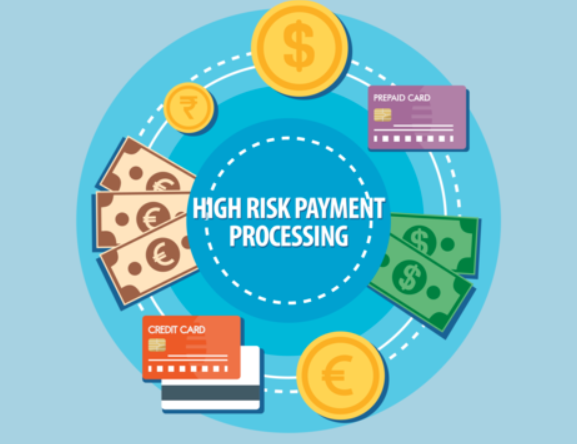AUTHOR : LISA WEBB
DATE : FEBRUARY 26, 2024
Introduction
High-Risk PSP Direct sales have evolved significantly in India, with a notable surge in high-risk payment service providers (PSPs). These entities facilitate transactions for businesses operating in industries deemed high-risk due to various factors. This article delves into the intricacies of high-risk PSP in India and sheds light on the challenges and opportunities associated with this burgeoning trend.

Understanding High-Risk PSPs
High-risk play a crucial role in enabling transactions for businesses facing elevated risks . These risks may stem from the nature of the industry, regulatory considerations, or other factors affecting financial stability. It’s essential to comprehend the intricacies of risk PSPs and the unique challenges they navigate in the Indian market.
Current Scenario in India
As the Indian payment industry witnesses unprecedented growth, the emergence of high-risk PSPs adds a layer of complexity. Established players and new entrants are vying for market share, creating a dynamic landscape with evolving trends and consumer preferences.
Factors Influencing High-Risk PSPs
A critical aspect of high-risk PSPs are understanding the regulatory landscape and industry-specific challenges. The article explores the factors influencing these service providers and the delicate balance they must strike to navigate the complexities of the Indian market successfully.
Benefits and Risks for Merchants
Merchants engaging in high-risk transactions enjoy certain benefits, such as wider market access. However, it’s crucial for them to be aware of potential drawbacks and take the necessary precautions to safeguard their businesses.
Security Measures in High-Risk Transactions
Security is paramount in high-risk transactions[1]. The article outlines the security measures adopted by high-risk PSPs, emphasizing the importance of encryption and secure gateways to protect sensitive information.

Case Studies
Examining real-world examples of successful high-risk PSP direct sales provides[2] valuable insights. Learning from the experiences of others helps businesses navigate challenges effectively and optimize their payment processes.
Tips for Merchants Venturing into High-Risk Direct Sales
For merchants considering high-risk direct sales[3], strategic planning and risk mitigation are key. The article provides practical tips to help businesses build a robust payment processing system and thrive in the high-risk landscape.
Customer Perspectives
Gaining insights into customer perspectives on high-risk PSP transactions[4] is vital. Understanding what factors contribute to trust and satisfaction in the payment process helps build long-term relationships with consumers.
Comparing High-Risk PSPs
The article compares various high-risk PSPs, analyzing[5] their features and services. Choosing the right PSP tailored to specific business needs is essential for success in high-risk direct sales.
Global Trends and Adaptation in India
By examining global trends, the article explores how India is adapting to international practices in high-risk direct sales. This comparative analysis provides a comprehensive view of the evolving landscape.
Future Outlook
Predicting the future of high-risk PSP direct sales in India involves considering potential advancements and challenges. The article offers insights into what the future may hold for this dynamic industry.
Industry Recommendations

The article concludes with recommendations for policymakers and strategies for fostering a healthy environment for high-risk PSP direct sales in India. Balancing innovation with regulatory considerations is crucial for sustained growth.
Tips for Merchants Venturing into High-Risk Direct Sales
Venturing into high-risk direct sales can be a lucrative move for merchants, but it requires careful planning and strategic execution. Here are some valuable tips to navigate the challenges and ensure a successful venture:
Conduct thorough market research.
- Before diving into high-risk direct sales, merchants should conduct comprehensive market research. Understanding the specific challenges and opportunities within the chosen industry is crucial for informed decision-making.
Choose the right high-risk PSP:
- Not all high-risk PSPs are created equal. Merchants must carefully evaluate and select a payment service provider that aligns with their business needs. Consider factors such as transaction fees, security protocols, and the provider’s reputation in the industry.
Implement robust security measures.
- Security is non-negotiable in high-risk transactions. Merchants should invest in state-of-the-art encryption technologies and secure payment gateways to protect sensitive customer information and build trust.
Stay compliant with regulations:
- High-risk industries often come with stringent regulations. Merchants must stay informed about and comply with all relevant regulations to avoid legal complications. This includes understanding customer data protection laws and anti-money laundering (AML) requirements.
Diversify payment options:
- Offering diverse payment options can attract a broader customer base. High-risk industries may require flexibility in payment methods, so merchants should ensure compatibility with various cards, digital wallets, and other payment modes.
Conclusion
High-risk PSP direct sales in India present both challenges and opportunities. Understanding the intricacies of this evolving landscape, implementing robust security measures, and learning from industry trends are essential for businesses to thrive in this dynamic market.
FAQs
- Are high-risk PSPs safe for businesses?
- Addressing concerns about the safety of engaging with high-risk PSPs.
- How can merchants mitigate risks in high-risk direct sales?
- Offering practical tips for risk mitigation strategies.
- What are the key features to consider when choosing a high-risk PSP?
- Providing a guide on essential features for businesses to evaluate.
- How do customer perceptions impact high-risk PSP transactions?
- Exploring the importance of customer trust in the payment process.
- What role do regulatory considerations play in the success of high-risk PSPs?
- Discussing the influence of regulatory frameworks on high-risk transactions.

